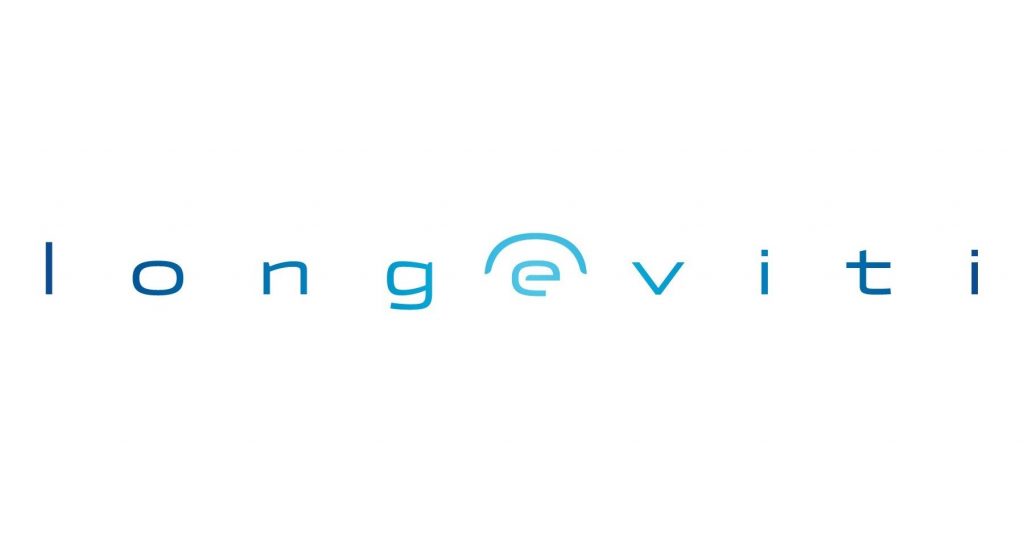
Baltimore Medtech Sector a Key Asset for Ascending Biotech Cluster, Part One
Johns Hopkins University. The University of Maryland, Baltimore. The UM Biopark. City Garage and Launchport. The enormous Port Covington development project. And now, a Baltimore Medtech ecosystem that’s blossoming within a rapidly ascending Charm City biotech cluster.
BioBuzz has been reporting on myriad medtech university system spinouts and maturing companies from the Baltimore area for a number of years; we’ve featured a number of exciting and promising individual companies. However, as we’ve stepped back a bit to examine more recent Baltimore biohub developments, it’s become clear that there is an unmistakable groundswell of medtech activity that’s transforming the Baltimore life sciences sector.
From diagnostics to robotics and everything in between, it’s clear Baltimore is a hotbed of medtech development. To provide a 40,000 foot view into this market sector, we’ve looked back at our story archives and recent news stories to compile the following roundup of Baltimore medtech companies to watch in 2022 and beyond.
NextStep Robotics

NextStep Robotics (NextStep), which was founded in 2017, is a therapeutic and robotics device company. The company’s lead product, AMBLE, is a portable ankle robotics technology that helps eliminate foot drop symptoms and can augment the physical therapy process. Foot drop is a painful disability caused by neurological or muscular injury that impacts millions of people. AMBLE is a first-of-its-kind device that is supported by leading-edge software.
The AMBLE technology was licensed out of The University of Maryland, Baltimore (UMB). The company has deep Maryland and Baltimore-area roots: CEO, Brad Hennessie, is a graduate of Towson University and the University of Maryland Global Campus and NextStep Robotics just recently announced that it will be occupying 3,600 feet of manufacturing and biometrics lab space at the UM BioPark.
NextStep has more than tripled in size since its inception and has received $500K in funding support from the Maryland Momentum Fund and UM Ventures. The company also announced in May 2021 that it had received $4.5M in NIH’s National Institute of Neurological Disorders and Stroke (NINDS) cooperative agreement funding to bring AMBLE to the market. The next step for AMBLE is a clinical trial for use as a stroke rehabilitation device.
JuneBrain
Another medtech company that’s found a home at the UM BioPark is JuneBrain, which was founded in 2017 by current CEO Dr. Samantha Scott. Scott is a Stanford University biomechanical engineering alum that came to Baltimore for a postdoctoral fellowship in 2014.

JuneBrain is a medtech startup that has the potential to improve the lives of the nearly 500 million patients suffering from neurological and retinal diseases. Scott has developed a prototype for a wearable, telehealth eye-scanning solution that allows providers to identify new disease activity outside of the clinic for patients suffering from diseases like multiple sclerosis (MS) and age-related macular degeneration (AMD), among others.
JuneBrain is actively refining its device prototype, building out its manufacturing relationships, and developing its software. Now that the company has its own space and has made a few new hires, fundraising is actively underway to raise capital for JuneBrain’s next steps. The company hopes to receive FDA clearance in the near future.
Most recently, JuneBrain was accepted into the 2Gether-International (2GI) accelerator, which is run by a DC not-for-profit and has a partnership with Google For Startups. The accelerator is designed to support and provide resources for up to 300 entrepreneurs with disabilities. In 2017, Scott herself was diagnosed with a neuromuscular disorder, which has provided her firsthand insight into some of the struggles of the patients she and her team are attempting to help.
LifeSprout
LifeSprout, founded in 2015, is a spinout company produced by the Johns Hopkins Technology Ventures’ (JHTV) FastForward incubator program. Dr. Sashank Reddy, a former JHU Hodson Scholar, founded LifeSprout on technology licensed out of Johns Hopkins. Reddy also serves as JHTV’s medical director.

The company’s Regenerative Matrix (RM) platform, which consists of chemically-defined, biocompatible materials with a natural feel that can integrate with living cells. RM products look and feel like natural tissue and mimic the extracellular matrix, all without animal or cell-derived constituents. The company is currently focused on developing aesthetic and regenerative medicine applications from this platform, including products for soft tissue loss, a major issue caused by cancer surgery, congenital malformations and the aging process.
LifeSprout’s lead product candidate, a dermal filler called Lumina that was created via the RM technology, is a regenerative dermal filler that feels more like native tissue. The dermal filler sector is a $2B market that was growing about 10% a year prior to the pandemic. The second prong of the company’s strategy is using the RM platform in the cell therapy space. During RM platform testing, LifeSprout discovered that its technology has the potential to augment cell therapy, where in many cases cells transferred into the body die, diffuse, or don’t get incorporated.
In April of 2020, the company closed a $28.5M Series A round. Most recently, LifeSprout named industry veteran Michael Kranda as its CEO.
CoapTech
CoapTech is a medical device company developing coaptive ultrasound technology. Bill Niland, a prominent Baltimore serial entrepreneur and the Co-founder and former CEO of Baltimore’s Harpoon Medical, is on CoapTech’s board. Harpoon Medical was acquired by Edwards Lifesciences Corporation for $250M in 2017. Niland has been active since the acquisition and has done much to grow Baltimore’s medtech community. In addition to serving as CoapTech’s Director, Niland has roles at several other medtech companies, including CEO of ReGelTech and Director at Sonavex; both of these medtech companies will be included in Part II of this article.

Harpoon’s other founder, Dr. James S. Gammie, now the Chief of Cardiac Surgery at the University of Maryland Medical Center and the lead investor at Epidarex Capital, has played, along with Niland, a large role in Baltimore’s medtech ecosystem’s growth and development. Breethe, which spun out of Gammie’s cardiac department, was a Maryland company focused on developing and commercializing the next generation of artificial lungs for hospital and home use; the company was acquired by Abiomed in April 2020 for an undisclosed amount.
CoapTech’s products include PUG (Percutaneous Ultrasound Gastrostomy), a point-of-care (as opposed to operating room) procedure for inserting gastrostomy tubes which can be quickly and easily performed by non-surgical providers. The enabling device for PUG is the company’s PUMA-G System (Point-of-care Ultrasound Magnet Aligned), which is the first FDA-cleared, ultrasound-based solution for bedside feeding tube placement.
CoapTech was named 2018 Maryland Incubator Company of the Year for Best Medical Device Company and medtech Innovator 2019 Best-in-Class Startup company. In August of 2020, CoapTech closed on $7M in Series B financing. Most recently, the company’s PUMA-G System was granted its CE Mark, which allows the device to be sold in Europe.
Longeviti Neuro Solutions
Based on laser technology from Johns Hopkins University, Longeviti was launched in 2015 with early commercialization support from TEDCO’s Maryland Innovation Initiative (MII) program. Co-founder and CEO, Jesse Christopher, a veteran industry executive formerly with Fortune 500 medical tech company Stryker Corp raised the company’s first $2M in equity financing within the first year of launch.

Longeviti is focused on providing innovative functional neurosurgery, neuro-reconstruction, and neuro-plastic surgery solutions to improve patient outcomes and reduce associated complications. The company’s patented Low-profile Intracranial Devices (L.I.D.) platform has already led to two commercialized and FDA-cleared neuro surgical implants—the ClearFitⓇ and the InvisiShuntⓇ (both Launched Q3 2018). The ClearFit implants include the ClearFit Disc and the ClearFit Cover.
Longeviti received FDA 510-K approval for its ClearFit OTS (off-the-shelf) implant device in November 2021. According to the company’s press release, this approval makes “Longeviti…the first solutions provider to bring an optically clear, polymethyl methacrylate, off-the-shelf cranial product to the market— enabling surgeons to address urgent, immediate functional and reconstructive clinical needs with the latest technological advancements in neurosurgery.” This marked a major milestone for Longeviti.
The company is currently located at the Launchport at City Garage, which is in the heart of the future Port Covington development project.
ClearMask
ClearMask was founded by Allyssa Dittmar in 2016. ClearMask is a medical device company that has developed a transparent surgical mask that provides full face visibility for patients. The ClearMask™ is designed to improve communication for all patients, and will specifically assist hard of hearing and deaf patients (20% of the population) communicate better with caregivers.

Dittmar, who has been deaf since birth, was inspired to create The ClearMask after a surgical procedure left her feeling “powerless.” She could not read the surgical team’s lips after they donned their traditional masks and therefore couldn’t communicate. She Co-founded Clearmask with her business partner, Aaron Hsu, who is now the company’s CEO.
ClearMask was among 250 startups invited to attend Google’s 2019 Startup Grind Global Conference in Silicon Valley where it placed into the top 50 special cohort of “the best of the best.” In 2019, ClearMask was named one of the top 20 startups in Baltimore by Technical.ly Baltimore. In April 2020, the ClearMask was approved by the FDA. There is also a consumer version of the ClearMask on the market as well.
- About the Author
- Latest Posts
Steve brings nearly twenty years of experience in marketing and content creation to the WorkForce Genetics team. He loves writing engaging content and working with partners, companies, and individuals to share their unique stories and showcase their work. Steve holds a BA in English from Providence College and an MA in American Literature from Montclair State University. He lives in Frederick, Maryland with his wife, two sons, and the family dog.





